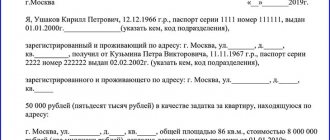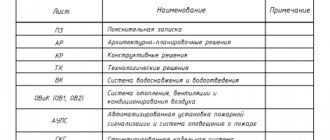Home » Inheritance » Heirs of the first stage
101
The Civil Code of the Russian Federation defines two options for inheritance: by will and by law. And if in the first case everything is clear and the inheritance is distributed according to the will of the deceased, then inheritance without a will is one of the most complex and controversial topics in legal practice. The main disputes occur at the stage of property distribution, when legal successors are determined and their shares are calculated.
Heirs by law
! Lawyer's warning: many older citizens often think that the heirs can be primarily the parents of the deceased. This is wrong. The law clearly stipulates the circle of heirs who can be called to inherit by law. At the same time, there are lines of inheritance, and if there are heirs of an earlier line (at least one), then the heirs of the second line cannot be called upon and endowed with the inheritance mass. The only exception is cases when a citizen of the summoned line has died, and his heir (the grandson of the testator, and at his death, the great-grandson) can inherit instead.
Inheritance queues
1st stage - “children, spouse and parents of the testator. The grandchildren of the testator and their descendants inherit only by right of representation.”
A very important example: Grandma died. The daughter (her heir of the 1st stage) does not want to enter into the inheritance and expects that the granddaughter of the grandmother will take over (considering her the heir by right of representation - 1st stage). But mother is wrong. While the mother is alive, the granddaughter is not included in the line of heirs at all. If the mother were not there on the day of the grandmother’s death, then the granddaughter could enter into the inheritance by right of representation (instead of the deceased mother). But if the heir of the first stage is alive, the heirs by right of representation do not inherit.
Another example. Mother passed away. Her children (there are three of them), parents (mother and father) and husband inherit property and debts after the mother. During the marriage, an apartment was purchased with a mortgage in the name of the deceased, and the deceased was the sole founder and director of the LLC. In this example, the circle of heirs is simple and clear, there are only 6 of them. But do all six of them need to inherit? And what will each of those who apply for inheritance receive? What to do if the children are young, do children have the right to refuse to accept debts after their mother... and many more questions may arise in such situations. Unfortunately, there is no single answer. For each family, for heirs from different families, the answers will be different.
An example about heirs from different marriages . A man died. From his first marriage he had two children, from his second one child. Surviving are his mother and his wife from his second marriage. How many heirs? Classically - 5. In fact, less is possible. After all, someone may refuse to inherit after a man, and someone may not know about his death at all.
2nd stage - “full and half-siblings of the testator, his grandparents, both on the father’s and mother’s sides. Children of full and half brothers and sisters of the testator (nephews and nieces of the testator) inherit only by right of representation.”
Very often, due to the lack of documents proving the relationship, heirs of the second or later order (if one is called) cannot submit an application to the notary to enter into an inheritance, since they cannot prove the relationship. And the process of collecting documents on kinship (orders from the registry office or other organizations in different cities or countries) can drag on for many months. It turns out that the deadline for submitting documents to the notary has been missed.
So, a woman came to us who acted independently and sent a request to Georgia to obtain her father’s birth certificate. The response was delayed by more than 6 months. Unfortunately, such situations happen. Therefore, ask our lawyers what to do in such cases. They can tell you the options for submitting documents to a notary or to the court, and can also help you carry out the necessary steps. Hiring a lawyer or lawyer will undoubtedly be more profitable than losing property.
! Advice from a lawyer : The period for entering into an inheritance is 6 months from the date of death of the testator. That is, before the end of the 6-month period, you need to declare your intention to accept the inheritance after the deceased citizen or show by your actions that the heir has actually accepted it. After this period - only a trial, only judicial evidence, in some cases restoration of missed deadlines, in extreme cases - loss of property.
Therefore, it is very important not to miss the deadline. And even in the absence of documents on kinship, you can “stake out” your right to inheritance. There is no universal advice that is the same for everyone. But in each specific case, a citizen can trust a competent lawyer or lawyer and take the right actions under his control and direction.
3rd stage - “full and half-siblings of the testator’s parents (testator’s aunts and uncles). The testator’s cousins inherit by right of representation.”
Lines of inheritance according to law, if there are no heirs of previous lines.
“If there are no heirs of the first, second and third orders, the inheritance according to the law is received by the relatives of the testator of the third, fourth and fifth degrees of kinship, not related to the heirs of the previous orders. The degree of kinship is determined by the number of births separating one relative from another. The birth of the testator himself is not included in this number.”
“In accordance with the Civil Code, the following are called for inheritance:
- as heirs of the fourth degree, relatives of the third degree of kinship - the great-grandfathers and great-grandmothers of the testator;
- as fifth-degree heirs, relatives of the fourth degree of kinship - children of the testator’s nephews and nieces (cousins and granddaughters) and siblings of his grandparents (great-grandparents);
- as heirs of the sixth degree, relatives of the fifth degree of kinship are the children of the testator’s cousins and granddaughters (great-great-grandsons and great-granddaughters), the children of his cousins (great-nephews and nieces) and the children of his great-uncles and grandmothers (great-uncles and aunts).
- If there are no heirs of previous orders, the stepsons, stepdaughters, stepfather and stepmother of the testator are called upon to inherit as heirs of the seventh order by law.”
Lawyer's answers to private questions
Can grandchildren claim their grandmother's inheritance while their parents are alive?
Yes. Grandchildren can receive property on the basis of a will or inheritance agreement. Additionally, their parents can register with a notary a waiver of property in favor of their children.
Can grandchildren claim their grandmother's inheritance when their father has died?
Yes, in this case the grandchildren receive the property by representation. Each of them receives part of the values based on the share that the deceased father would have received at one time.
Can grandchildren claim their grandmother's inheritance if the mother does not accept the inheritance?
It all depends on the reason why the mother does not accept the inheritance. If a woman refuses it and wants to pass it on to her children, then yes. If the mother does not submit an application in a timely manner due to her unwillingness to accept the property, then the inheritance passes to the representatives of the next line.
Can I make a will for my granddaughter while my husband is still alive? Is his consent necessary?
No, his consent is not required. But you can only transfer half of the common property, i.e. your part. Your husband's share cannot appear in the will.
My grandmother was declared dead by the court. My parents have been dead for a long time; she raised me herself. Can I inherit?
Yes, you have the right to receive an inheritance on a general basis. To do this, you need to contact a notary with an application within 6 months from the date the court decision enters into legal force
Order of inheritance. Right of inheritance by law
What does it mean to comply with the order of inheritance established by law ? This means that the heirs of each subsequent queue inherit if there are no heirs of the previous queues. Let's consider a number of situations that the law talks about.
- “if there are no heirs of previous orders,” that is, they died or did not exist at all. For example, a woman died who had neither a husband nor children; her elderly mother and father died long ago. Then the heirs of the second stage are called to inherit. If they are not there - a third one, etc.
- if none of the heirs has the right to inherit. The law clearly states this.
- heirs are excluded from inheritance. Complex situations when, for various reasons (killed the testator, led to his death through his inaction, etc.) are proven in court.
- the heirs are deprived of the inheritance, that is, for example, there is an order from the testator not to transfer the inheritance to him (will).
- no one accepted the inheritance within the period established by law. Moreover, for different inheritance queues the timing will be different.
- everyone renounced the inheritance. This also happens. In our practice, there was a well-to-do old woman who really did not want to do anything to accept the 1/2 share of the apartment that was given to her by law. She had to be persuaded for a long time in the interests of the owner of the second 1/2 share of the apartment for the future sale of the entire apartment. Usually they refuse an inheritance when the debts of the deceased exceed the size of the inheritance, or after “criminal” deaths, when citizens are afraid to even think about what happened. let alone draw up documents.
! Good advice from a lawyer . If the death is “criminal” and there are suspicions that someone or something threatens the life, health or property of the heirs, you can “lay low” for a while and watch the development of events. But actual actions that prove in the future that the inheritance was accepted on time and that the deadline was not missed must be done!
The order of inheritance is determined by Part 3 of the Civil Code, with exceptions.
The right to represent what it is and who can use it
The code explains this circumstance quite clearly. And to put it in plain language, this right is received by the descendant of the heir if he dies . For example, the heir is the son of the deceased, but he, too, has long since rested in peace, but he still has children, then they can enter into inheritance rights instead of their father.
However, we should not forget that if a given person was found unworthy, then his descendants also do not have any rights to property division.
Size of shares within one inheritance queue
Heirs of the same line inherit in equal shares, with the exception of heirs inheriting by right of representation. If there are several such heirs, they divide the share due by law into as many parts as there are heirs by right of representation. For example, a grandfather had a son and a daughter. My daughter died. The daughter left three children. After the death of the grandfather, the inheritance will be accepted by law by the son - 1/2 share, and three grandchildren (daughter's children) by right of representation, 1/6 to each grandson.
! Advice from a lawyer . It is worth considering that each heir can wisely use his share of the inheritance. For example, why does a 2-year-old child need 1/6th share of a car made in 2001? You can agree on which heir gets what.
! More advice from a lawyer. The surviving spouse can and must allocate a marital share from the common property acquired during the marriage. She should not be included in the estate. If during marriage you bought property with money that one of the spouses received when selling their property received before marriage (for example, an apartment was donated or inherited), you can prove these circumstances in court and accept a share greater than 1/2, allotted under the Family Code. code.
Who is allocated a mandatory share in inherited property?
Article 1149 of the Civil Code of the Russian Federation states that there are persons who must receive their share of the inheritance. They cannot be deprived of it, and even if they are not indicated in the will, the state must still allocate them a part of the inheritance.
These are minor children, natural or adopted, recognized as incapacitated, for example, having a disability, as well as spouses of retirement age or also on disability without the ability to work, and, accordingly, dependents in the same situation.
This category of citizens, in any case, whether there is a will or not, will definitely receive their share in the property of the deceased, only this requires certain evidence, for example, officially confirmed papers about the incapacitating degree of disability.
Changing the order of succession by law
The order of inheritance under the law can be changed by a will (read “Inheritance by will”), allocation of shares to obligatory heirs, and other circumstances.
When inheriting by law, there are “unworthy heirs who, by their deliberate unlawful actions directed against the testator, any of his heirs or against the implementation of the last will of the testator, expressed in the will, contributed or tried to promote the calling of themselves as heirs or other persons to inherit, or contributed or attempted to promote an increase in the share of the inheritance due to them or other persons, if these circumstances are confirmed in court). Then the order of inheritance can be completely or partially changed.”
Do dependents recognized as disabled participate in the division?
According to the law, dependents of the deceased who are not his blood relatives also have the right to inherit.
Such persons include family members who have not reached the age of 18 , or who are studying in educational institutions on a full-time basis and who lived with the testator for at least 1 year before his death.
They also recognize older people who have reached retirement age and have been living at the expense of the deceased for the last year. They are the heirs of the second and subsequent stages.
What is an escheated inheritance?
Rarely, but it still happens that the deceased has no relatives left, or they are considered unworthy, and then all his property must become the property of the state.
However, such cases are so rare, because the order of inheritance can be traced to the 8th step , and there will always be at least some distant relatives.




